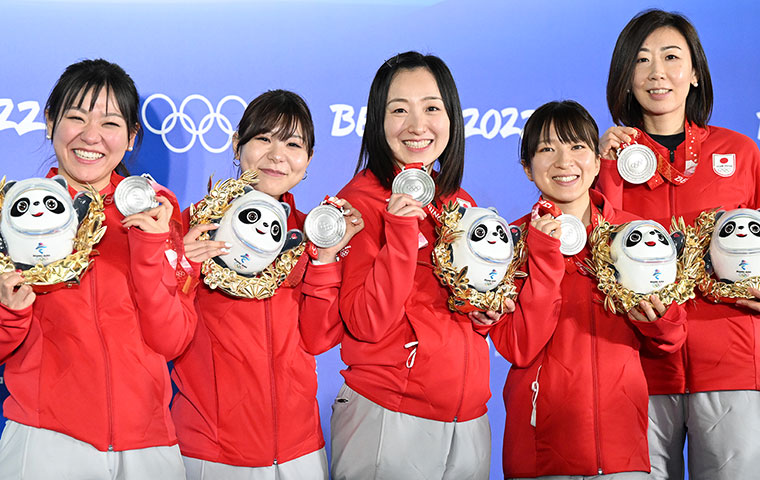Verstappen Hails Japanese Collectivism That Led Honda to Triumph
Related Articles

With Honda winning its first F1 title in 30 years, new light is shed on the Japanese corporate culture and mentality, quite different from those in the West.
In 2019, Honda became the power unit supplier for Red Bull. It was Max Verstappen’s first experience with Japanese people on the team, and when asked about his impressions of Honda, he said,
“To be honest, I was a bit bewildered because I didn’t know what they were thinking or expected from me, and I wasn’t sure how to deal with them.”
But he needed not to worry.
“They don’t talk much and are quiet, but that’s because they’re always concentrating on their job. I’ll never forget the first time I went to HRD Sakura (Honda’s R&D base for F1). I asked several engineers some questions, and they all gave perfect answers to each one.”
In the Western world, where individualism prevails, many organizations are fragmented. So, although engineers develop highly specialized technologies in their field, they often know nothing about other fields. Thus, even within the same organization, it is not rare for people to engage in heated disagreements. That is why a powerful leader who can bring together a group of strong personalities is needed.
While teams and companies in the U.S. and Europe have developed a highly specialized way of working, Japanese companies like Honda tends to value collectivism that prioritizes organizational interests over claims by individuals.
The Issues in Collectivism
In development at Honda, everyone shares the information, and everyone acts by thinking about the whole, considering the optimal method for the organization. A good example is the regular job rotation between the development staff and on-site staff at HRD Sakura.
For instance, one process at HRD Sakura is the bench test for checking reliability and durability. In Europe and the U.S., veterans with decades of experience in the field would be conducting bench tests. But at Honda, an on-site staff could be working in this section. Because these members are familiar with the actual site, they can run the power units in an almost-real environment, which leads to true enhancement in reliability.
However, it takes time to establish this collectivism. After its F1 comeback, Honda was struggling with a technical challenge for the power unit. Many criticized Honda for trying to compete in the F1 with collectivism, where individualism was the norm. The key to succeeding in individualism is to recruit top talent, but that does not always work well in collectivism.
McLaren failed to understand this and chose early termination of the five-year contract. Meanwhile, Toro Rosso (formerly AlphaTauri) team principal Franz Tost had experience living in Japan as the manager of Ralf Schumacher, who later became an F1 driver in the late 1990s. Tost believed, “if you give them time, Honda will definitely make a comeback,” and became a partner in 2018.
Tost was right. After accumulating knowhow for three years, Honda gradually showed its true strength in the fourth year. In the fifth year with Red Bull in 2019, Honda’s collectivism began fully functioning. When Verstappen said, “Honda has a very different mentality from Renault, and I’m not saying that to criticize Renault, but it’s very different. Everyone is a professional at Honda and it’s well organized,” it wasn’t flattery; he really meant it.
A European Discovers the Power of Collectivism

The Honda-style collectivism finally bore fruit in 2021. Seeing the Honda staff members shed tears of joy, Verstappen said,
“I think Europeans could learn more of their mentality.”
Not only Verstappen, but the staff from Honda’s partners, Red Bull and AlphaTauri, also felt the same. That is why they decided to continue along a new path with Honda from 2022 onward, after Honda’s 2021 exit from the F1 as a power unit supplier.
In the new collaboration, Red Bull will have the right to use Honda’s intellectual property relating to the power unit. The newly established Red Bull Powertrains will handle the operation and management.
It has been decided that many staff from the HRD UK (Honda’s F1 base in the U.K.), which will close its factory in February 2022, will transfer to Red Bull Powertrains.
Taking the Japanese Team Spirit to the World
It is not just the engineers. Red Bull also hired a Japanese consultant—Masashi Yamamoto, the managing director and a major contributor to Honda’s first F1 title in 30 years. After leaving Honda at the end of January, he established his own company and signed a contract with Red Bull Powertrains. In 2022, he will support Red Bull as a consultant, with directions from the team’s motorsport advisor Helmut Marko and the principal Christian Horner.
Yamamoto says,
“In a big sense, I’m acting as a bridge with Japan. When Honda, or any other Japanese companies in the future, work together with Red Bull, I’ll explain the Japanese work culture to Red Bull, while helping to build good relations. That’s my key role.”
Honda has left the F1, but the crack it opened in the F1 world will continue to let in fresh air in 2022 and beyond.




